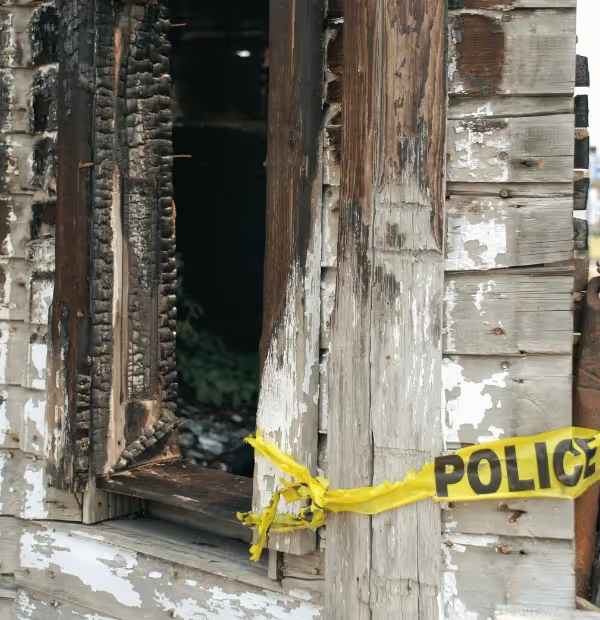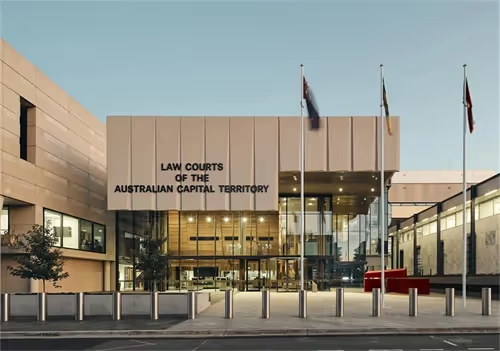Arson Offences

Expert Legal Help for Arson Charges
If you are facing arson charges in NSW, it is crucial to have experienced representation to protect your rights. At Brightstone Defence, our criminal lawyers have extensive experience defending clients accused of arson and related property offences. We focus on achieving the best possible outcome through a strategic and evidence-based approach.
Detailed Description:
- We assess the strength of the prosecution’s evidence and identify weaknesses in their case.
- We can negotiate lesser charges or argue for a more lenient penalty depending on your individual circumstances.
- Our team has experience representing clients in both Local and District Courts across NSW and can guide you through every stage of the process.
If you or someone you know has been charged with arson, contact Brightstone Defence today for confidential legal advice and expert representation.
What is arson?
Arson is considered a very serious crime that is set out under the Crimes Act 1900 (NSW) and the Rural Fires Act 1997. Maximum penalties vary depending on which offence you have been charged with. If you have been charged with any variation of arson, it is important to know your rights and options for your charge.
Elements the Prosecution Must Prove
Types of Arson and Related Offences under the Crimes Act
Destroying or damaging property
Under section 195 of the Crimes Act, it states that if a person uses fire to intentionally or recklessly destroy or damage property, they are liable to a maximum imprisonment for 10 years, or 11 years if the offence was committed in company. If the arson was committed during a public disorder, such as that of a riot, the maximum imprisonment term is 12 years.
Destroying or damaging property with intent to injure a person
Under section 196 of the Crimes Act, it states that, if a person commits the offence with the intent to cause bodily injury to another, they are liable for a maximum penalty of 14 years imprisonment. If the offence was committed during a public disorder, the maximum is 16 years imprisonment.
Dishonestly destroying or damaging property
Under section 197 of the Crimes Act, this offence sets out the offence of destroying or damaging property with the intent to make a gain for that person or another. An example of this is when a person commits arson for financial gain, in what is otherwise known as an ‘insurance job’. The maximum penalty for this offence is 14 years imprisonment. If this offence has been committed during a public disorder, the maximum penalty is 16 years imprisonment.
Destroying or damaging property with intention of endangering life
Section 198 of the Crimes Act sets out the offence of damaging property with the intention of endangering the life of another. The maximum penalty for this offence is 25 years imprisonment.
Bushfires
Section 203E of the Crimes Act lays out the offence relating to bushfires. This section states that a person who intentionally causes a fire and who is reckless as to the spread of the fire to vegetation on any public land or on land belonging to another is guilty of an offence and liable to a maximum penalty of 21 years imprisonment.
Possible Defences
Arson is a complex charge with many varying circumstances and as such it is essential that you understand the defences that may be applicable to your case. Possible defences may include:
- Lack of intent
- Lack of evidence
- Duress
- Mental illness
- Identity
- Lawful excuse
Potential Penalties
A similar offence is legislated under section 100(1) of the Rural Fires Act 1997. This section states that:
A person who, without lawful authority:
(a) sets fire or causes fire to be set to the land or property of another person, the Crown or any public authority, or
(b) being the owner or occupier of any land, permits a fire to escape from that land under such circumstances as to cause or be likely to cause injury or damage to the person, land or property of another person or the land or property of the Crown or a public authority is guilty of an offence.
The maximum penalty for this offence is 5 years imprisonment, or 1000 penalty units ($110,000). There are also possible aggravating circumstances to this offence, such as if an individual commits this offence with a present fire ban in place. If a person commits this offence with the knowledge that a fire ban was in place, the maximum penalty is 7 years imprisonment and, or 1200 penalty units ($132,000).
It is important to note that with all arson offences, if a person dies because of the offence of setting a fire, you may additionally be charged with murder or manslaughter. The increased severity of this change makes it crucial to seek expert legal advice.

Legal Process
& Options
It is important to understand the consequences and possible outcomes of pleading guilty or not guilty to this offence. At Brightstone Defence, we analyse each client’s case with the utmost care and consideration to obtain the best outcome.
Pleading
Not Guilty
If you decide to plead not guilty, the prosecution must prove beyond reasonable doubt that you were responsible for the offence. Entering a plea of not guilty means that the matter will proceed to a contested hearing. If you are found guilty you will be sentenced based on your circumstances and mitigating factors. Immediate legal advice from an experienced criminal lawyer is essential. Brightstone Defence will help you understand your options, review the police brief of evidence and decide whether to seek a contested hearing.
Pleading
Guilty
Entering a plea of guilty means that you accept the allegation and your case will proceed to sentence. Whether you decide to plead guilty or not guilty, it is important to seek legal advice from a criminal defence lawyer. Brightstone Defence is experienced in representing you for the best possible outcome for your case.
Arson is the intentional destruction or damage of property using fire, whilst recklessly setting a fire is a less culpable offence where the damage was reasonably foreseeable.
Yes, you can be charged even if the property is jointly owned or you had no ownership at all.
Depending on the circumstances of your case, if the fire has caused significant damage or danger to life, a sentence of imprisonment is well within the sentencing scope. However, if the objective seriousness is low, alternative penalties are available.
The term “knowingly” means that you either knew or strongly suspected that the property was stolen at the time that you received or was dealing with it.
Yes, you do not need to steal the goods to be found guilty of this offence. Receiving, disposing or attempting to dispose of stolen goods is enough.
If you genuinely did not know that the goods were stolen and there are no reasonable grounds to suspect that you knew, this may be a valid defence to your case.
If you are found guilty or convicted of this offence, you will most likely receive a criminal record. However, it is important to receive legal advice for representation as your lawyer may argue for a non-conviction in order to avoid a criminal record. Contact Brightstone Defence to know your rights and options.
You are not required to explain where the items came from but anything you do or say can be used against you in court. Your best option is to remain silent and to avoid answering questions without legal advice. Contact Brightstone Defence for tailored legal advice for your case.
Yes, the police only need to have a reasonable suspicion that the goods were stolen or unlawfully obtained, not that they actually were.
If you are convicted of this offence, yes. However, your lawyer may argue for a non-conviction outcome such as a section 10 dismissal or a Conditional Release Order (Without Conviction), depending on your circumstances.
“Proceeds of crime” refers to property or benefits derived directly or indirectly from the commission of a criminal offence. This can include but not limited to:
- Money from drug trafficking
- Vehicles or homes purchased using illicit funds
- Cryptocurrency from fraud or scams
The law allows for the seizure, forfeiture, and confiscation of such assets, even without a criminal conviction in some cases.
Under section 193B of the Crimes Act 1900 (NSW), a person commits a money laundering offence if they:
- Knowingly deal with the proceeds of crime, and
- Intend to conceal its origin.
Under s 193A, to "deal with" includes:
- Receiving, possessing, concealing, disposing of, or using the proceeds;
- Engaging in transactions involving tainted property;
- Facilitating transfers through third parties or accounts.
Even passive conduct (e.g. allowing use of a bank account) can fall under the scope of this provision.
- Common property-related offences include:
- AUSTRAC monitors financial transactions and reports suspicious activity.
- NSW Police, AFP, and DPP work together to:
- Initiate proceeds of crime proceedings,
- Freeze assets,
- Coordinate criminal investigations into fraud, drug, and property offences.
Yes. If property is:
- Jointly owned but linked to crime,
- Transferred to third parties (including family) to avoid confiscation, or
- Used to facilitate criminal conduct,
it may be subject to forfeiture orders, unless an innocent interest can be proven under the relevant Act.
- Yes
If your property is restrained or subject to forfeiture under the Criminal Assets Recovery Act 1990 (NSW), our team can contest the orders, argue innocent ownership, and protect your financial interests. We have experience handling restraining orders, forfeiture orders, and unexplained wealth proceedings.
Do not answer questions or provide documents without first speaking to a lawyer. Contact Brightstone Defence immediately so we can step in, protect your rights, and respond on your behalf.
- Yes
Proceeds of crime and money laundering offences are treated very seriously under both NSW and Commonwealth law. Without legal advice, you risk making admissions or mistakes that could damage your case. A specialised criminal defence lawyer can guide you from the first police interview through to court representation.
We examine the evidence in detail, challenge whether the property truly qualifies as “proceeds of crime”, and test the prosecution’s ability to prove knowledge or intent. Our lawyers also negotiate with the prosecution to reduce or withdraw charges where possible.
Arson is the intentional destruction or damage of property using fire, whilst recklessly setting a fire is a less culpable offence where the damage was reasonably foreseeable.
Yes, you can be charged even if the property is jointly owned or you had no ownership at all.
Depending on the circumstances of your case, if the fire has caused significant damage or danger to life, a sentence of imprisonment is well within the sentencing scope. However, if the objective seriousness is low, alternative penalties are available.
- Yes
If your property is restrained or subject to forfeiture under the Criminal Assets Recovery Act 1990 (NSW), our team can contest the orders, argue innocent ownership, and protect your financial interests. We have experience handling restraining orders, forfeiture orders, and unexplained wealth proceedings.
Do not answer questions or provide documents without first speaking to a lawyer. Contact Brightstone Defence immediately so we can step in, protect your rights, and respond on your behalf.
- Yes
Proceeds of crime and money laundering offences are treated very seriously under both NSW and Commonwealth law. Without legal advice, you risk making admissions or mistakes that could damage your case. A specialised criminal defence lawyer can guide you from the first police interview through to court representation.
We examine the evidence in detail, challenge whether the property truly qualifies as “proceeds of crime”, and test the prosecution’s ability to prove knowledge or intent. Our lawyers also negotiate with the prosecution to reduce or withdraw charges where possible.
SUCCESS CASES & ARTICLES
Brightstone Defence delivers focused criminal defence services year-round and has built a strong track record of successful outcomes.
Meet our lawyers
WORLD CLASS
REPRESENTATION
100+ 5 Star Reviews
Personalised legal strategies tailored to each case
Recognised leaders in criminal defence law
Free initial consultation and case evaluation
Proven success in high-stakes and complex cases
Get AN instant estimated Quote
and a free consultation session
Facing criminal charges? Our experienced criminal defence lawyers are here to help. Book your free consultation now to discuss your case and understand your options.








